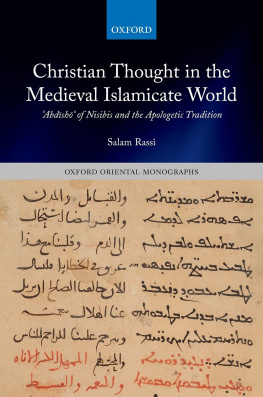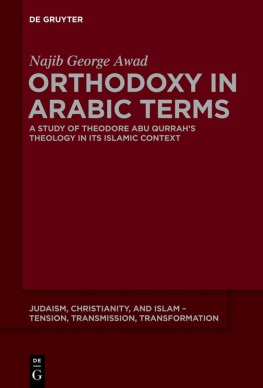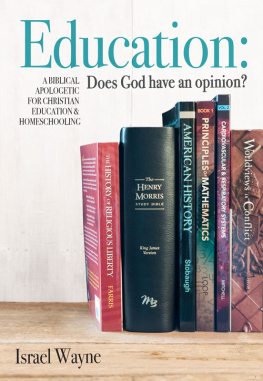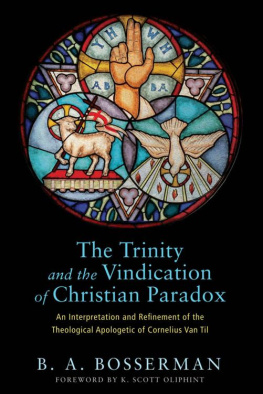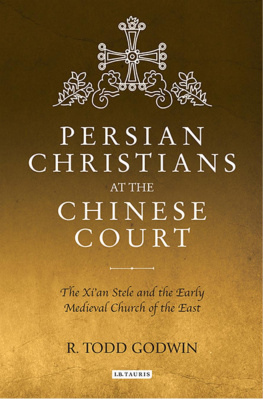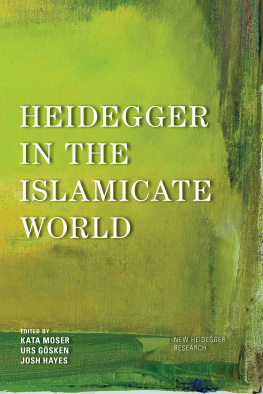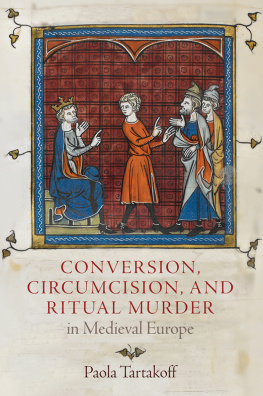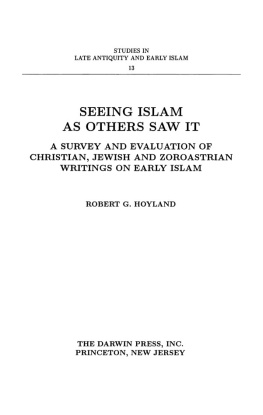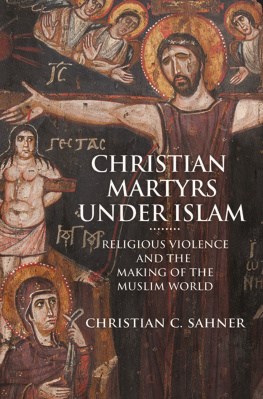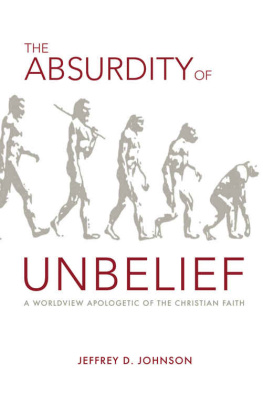with the Faculty. Its range of subject matter includes language, literature,
Mediterranean and Caucasus to East Asia. The emphasis is more on specialist
studies than on works of a general nature.

Great Clarendon Street, Oxford, OX2 6DP, United Kingdom
Oxford University Press is a department of the University of Oxford. It furthers the Universitys objective of excellence in research, scholarship, and education by publishing worldwide. Oxford is a registered trade mark of Oxford University Press in the UK and in certain other countries
Salam Rassi 2022
The moral rights of the author have been asserted
First Edition published in 2022
Impression: 1
All rights reserved. No part of this publication may be reproduced, stored in a retrieval system, or transmitted, in any form or by any means, without the prior permission in writing of Oxford University Press, or as expressly permitted by law, by licence or under terms agreed with the appropriate reprographics rights organization. Enquiries concerning reproduction outside the scope of the above should be sent to the Rights Department, Oxford University Press, at the address above
You must not circulate this work in any other form and you must impose this same condition on any acquirer
Published in the United States of America by Oxford University Press
198 Madison Avenue, New York, NY 10016, United States of America
British Library Cataloguing in Publication Data
Data available
Library of Congress Control Number: 2021941266
ISBN 9780192846761
ebook ISBN 9780192662170
DOI: 10.1093/oso/9780192846761.001.0001
Printed and bound by CPI Group (UK) Ltd, Croydon, CR0 4YY
Links to third party websites are provided by Oxford in good faith and for information only. Oxford disclaims any responsibility for the materials contained in any third party website referenced in this work.
Acknowledgements
This book is a revised version of my 2016 doctoral thesis, defended at the Oriental Institute, University of Oxford. I should first like to thank Sebastian Brock and Herman Teule for examining the thesis and recommending it for publication. David Taylor, my former doctoral advisor, supported this project from its inception and has always encouraged me to take the path less travelled. John-Paul Ghobrial welcomed me to Oxford as a British Academy Postdoctoral Fellow and has since provided me with a great deal of moral as well as intellectual support. Further thanks are owed to Yuhan D-S Vevaina, Nora Schmid, and Wahid Amin for casting their eyes on various chapters and providing me with invaluable feedback. I am also grateful to two anonymous reviewers for their comments, corrections, and insights, and to the team at Oxford University Press for steering the editorial process from start to finish.
When I first set out on this topic there were relatively few resources available to those wishing to study the later history of Syriac and Christian Arabic literature. In many ways it felt like I was working from the ground up. Fortunately, critical editions of several key works have since appeared thanks to the philological labours of eljko Paa, Gianmaria Gianazza, Bishara Ebied, and Nikolai Seleznyov (). I also owe a special debt of gratitude to the Hill Museum and Manuscript Library (HMML) for making several digitized Syriac and Arabic manuscripts freely available online. This book would have been all the more difficult to write were it not for the work of HMML and their partners across the Middle East. They are a credit to both researchers and the wider community, especially at a time when archives are coming under increasing threat.
Conversations with colleagues, friends, and fellow travellers have been especially helpful. For these interactions I am most thankful to Ahab Bdaiwi, Jonathan Brack, Anna Chrysostomides, Bogdan Draghici, Regula Forster, Tobias Graff, Simcha Gross, Nicholas Harris, Anabel Inge, Grigory Kessel, Feras Krimsti, Ryan Lynch, Matthew Melvin-Koushki, Sergey Minov, Heleen Murre-van den Berg, Samuel Noble, Lucy Parker, Adrian Pirtea, Liana Saif, Hidemi Takahashi, Jack Tannous, Cecilia Tarruell, and Dorthea Weltecke.
Finally, I would like to thank lia Rodrigues for her patience throughout this whole process, and for teaching me to be whole in everything and to put all I am in the smallest things I do.
Contents
All Arabic terms, names, and phrases have been rendered according to the International Journal of Middle Eastern Studies (IJMES) system of transliteration. For the Syriac I have used a single method of transliteration for East and West Syrian pronunciation. As such, I have employed conventions governing soft and hard consonants (rukka and quy) as stipulated by the medieval East Syrian grammatical tradition. This includes retaining the hard p (e.g., naqqp) in all instances except in certain cases such as nap (pronounced naw). All other letters subject to spirantization have been softened where appropriate, e.g., y. However, for the sake of those unspecialized in the Syriac language, I have avoided these conventions where personal names are concerned, thus Abdsh bar Brkh not Ad bar Br.
To avoid cluttering the text with multiple dating systems, I have chosen to use Common Era in most instances. In a few cases, however, A.G. is given for anno graecorum and A.H. for anno hegirae. As for Christian personal names, I have tended to employ Romanized and Anglicized forms of Greek-origin names that appear in Syriac (e.g., Theodore instead of Twdrs or Nestorius instead of Nesrs). Names of Semitic origin have been left in place (e.g., Yahbalh and shdd), with the exception of widely used Anglicized forms of Biblical names such as Jacob and Ephrem. Place names conform to their pre-modern usage, thus mid instead of Diyarbakr, Mayyfaraqn instead of Silvan, etc., though well-known cities like Aleppo, Damascus, and Baghdad have been normalized throughout.
Abbreviations used for Abdsh bar Brkhs works are as follows:
I fondamenti della religione (Kitb Ul al-dn). Edited and translated by Gianmaria Gianazza. Bologna: Gruppo di Ricerca Arabo-Cristiana, 2018.
Catologus Auctorum Abdio /Fihris al-muallifn talif li-Abd Yash al-bw. Edited and translated by Ysuf abb. Baghdad: al-Majma al-Ilm al-Irq, 1986.
Farid al-fawid f ul al-dn wa-l-aqid.

